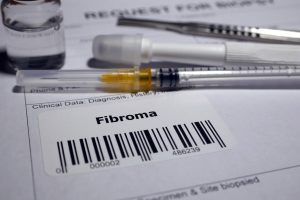Fibroids and the Well Woman Exam in Miami
Did you know that about 80% of women experience fibroids by the age of 50?
Fibroids are common and are treatable, so here are some things you should know about the best fibroid treatment and how it’s related to a well-woman exam in Miami.
1. What Are Fibroids?
Fibroids are abnormal growths that develop in or on your uterus. Fibroids and can become large and cause heavy bleeding during menstruation and severe abdominal pain. Many women actually experience no symptoms at all, and these growths are usually benign and considered noncancerous tumors.
Fibroids are also known as uterine myomas, leiomyomas, myomas, and fibromas. While the cause of fibroids is unknown, several factors can influence the formation of fibroids.
For example, genetics may play a role. If having fibroids runs in the family, such as with your grandmother, your mother, or your sister, chances are you will develop fibroids as well.
Hormones can also be a factor, as estrogen and progesterone cause the lining of the uterus to thicken, which possibly triggers fibroids to form and develop.
Speaking of these two hormones, pregnancy increases your body’s production of them, so for many women, fibroids only develop when they are pregnant. As for any symptoms you experience, it will all depend on how many fibroids you have, how big they are, and where they are located.
If you’re going through menopause, your levels of estrogen and progesterone will drop, so your fibroids will likely shrink and make you experience little to no symptoms.
Common symptoms of fibroids are heavy bleeding, increased menstrual cramping, pain during intercourse, pain in your pelvis or lower back, increased urination, longer periods, swelling in your abdomen, and pressure in your lower abdomen.
2. The Best Fibroid Treatment
The best fibroid treatment you can get will be based on your body, your symptoms, and your doctor. Depending on your age, the fibroid size, and your overall health, your OB/GYN will develop a treatment plan.
Certain home remedies and natural treatments like yoga, massages, and acupuncture can help relieve pain and discomfort.
You can also opt for dietary changes, like avoiding high-calorie foods and meat. Try opting for green vegetables, fish like tuna and salmon, and other foods high in flavonoids. Your doctor can also prescribe you birth control to regulate your hormones, and you can take pain medications.
In rare cases with women who develop extremely large growths, you can opt for surgically removing the fibroids. There is no one-size-fits-all when it comes to developing the best fibroid treatment for you.

After your well woman exam in Miami, your OBGYN can help you decide on the best fibroid treatment for your body and your symptoms.
3. How to Detect Fibroids: Well Woman Exam in Miami
Regularly getting a pap smear test in Miami, a cancer screening in Miami, and a well woman exam in Miami can help your doctor detect fibroids early and be able to treat them sooner. To properly diagnose fibroids and receive medication, you will have to visit your gynecologists for a pelvic exam to check the condition, size, and shape of your uterus.
You may also need other tests such as an ultrasound, which will produce images of your uterus to allow your doctor to see if you have any fibroids. A transvaginal ultrasound involves a wand being inserted into the vagina, which provides clearer pictures of the uterus.
You may also need a pelvic MRI, which is an in-depth imaging test that shows pictures of your uterus, your ovaries, and other pelvic organs.
While fibroids are noncancerous, getting a regular cancer screening in Miami can still allow your doctor to detect these growths. A pap smear test in Miami is incredibly simple and fast, so don’t skip it the next time you visit your gynecologist.
Learn more about getting a well woman exam in Miami, a cancer screening in Miami, and a pap smear test in Miami at our very own website! Don’t hesitate to give us a call.






